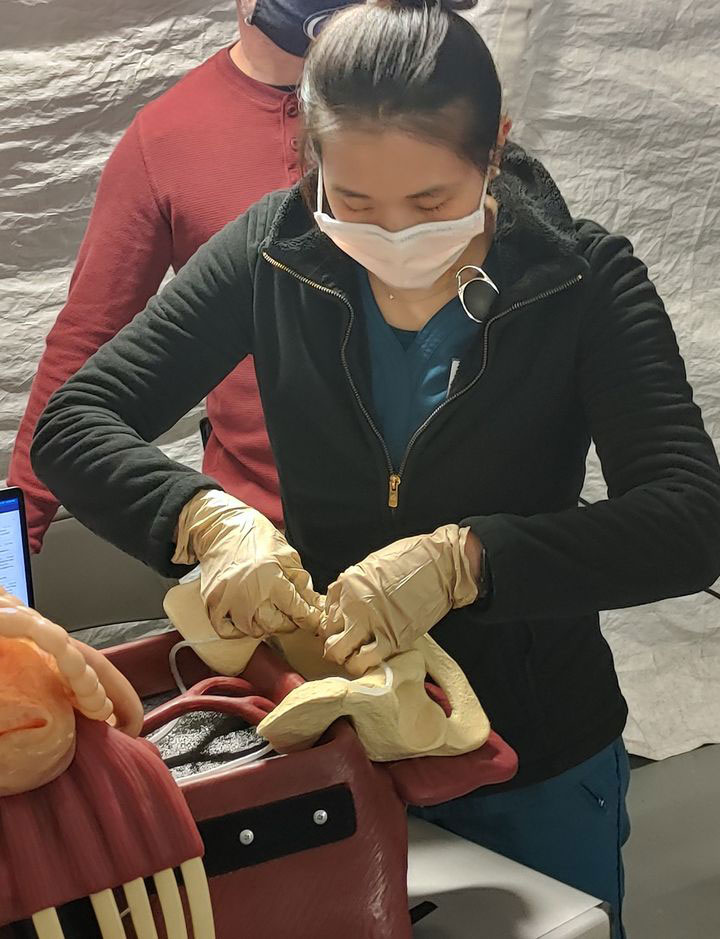TATRC Research Nurse Trains at Walter Reed for Prolonged Field Care
June 30, 2021 | Download PDF

The Fundamentals of Critical Care Support (FCCS) – Resource Limited (RL) was a 2-day course held in March of this year and was hosted at the Walter Reed National Military Medical Center in conjunction with the Uniformed Services University of the Health Sciences (USUHS) in Bethesda, Maryland. TATRC’s Research Nurse, Ms. Holly Ortman, from the Medical Modeling, Simulation, Informatics and Visualization (MMSIV) Division was invited to take part in this highly informative course and training event.
The course is designed to expose credentialed health care providers to a restricted resource environment and familiarize themselves with providing care to critically ill or injured patients in austere settings. Using the minimum-better-best pathways, clinicians were encouraged to practice resource management and allocation, appropriate patient triage and care, and ethical considerations during mass-casualty situations. The course builds on caregiver’s medical experience, skills, and knowledge of available assets and resources to guide treatment and evacuation plans. It also leverages and encourages telemedicine use for clinical decision making support and procedural guidance when transport or evacuation is delayed or unavailable.
Attending this valuable course provided Ms. Ortman with new knowledge that will assist the MMSIV Division to craft and tailor simulation scenarios to better prepare and familiarize Warfighters with emerging technologies designed to support clinical decision making in forward operating environments. Integrating these situational facts into research allows the MMSIV team to continuously evolve and continue expanding the immersive simulation environment.
This strategic knowledge and training aligns with TATRC’s mission and vision of incorporating advanced ground-breaking technology to address and prepare for capability gaps within military medicine. Ms. Ortman stated, “Attending the training was incredibly beneficial to better understand the environment our Warfighters are sometimes forced to operate in. Assimilating this new information into simulation environments will assist the MMSIV team in developing enhanced training and data collection scenarios aimed at providing real-life learning opportunities for our Warfighters.”
This article was published in the January 2022 issue of the TATRC Times.